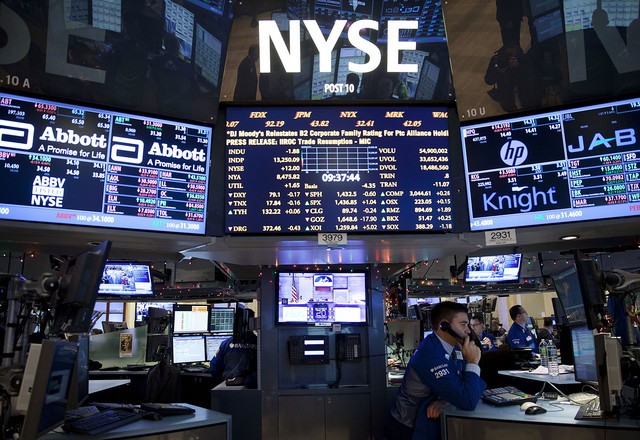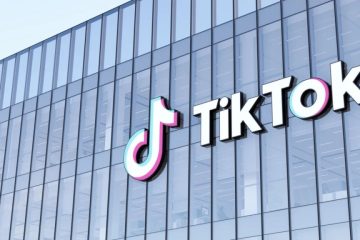Watch Out NYSE—Wall Street Is Building Its Own Stock Exchange

Wall Street broker-dealers have long been frustrated with what they say are over-the-top fees charged by stock exchange giants such as the Nasdaq and New York Stock Exchange.
The solution: Build their own exchange to shake up what has effectively become a duopoly.
On Monday, nine financial firms including Morgan Stanley, Bank of America, and Fidelity Investments announced plans to form an equities exchange dubbed the Members Exchange, or MEMX.
The new stock market, which is expected to file an application with the Securities and Exchange Commission in early 2019, plans to reduce costs while simplifying the trading process, according to its press release. It’s unclear when exactly trading venue will be up and running, though it could take as long as a year.
“Participants in today’s equity markets deserve an innovative alternative that is aligned with their interests, which is why we are pleased to support the launch of this new trading platform,” said Vlad Khandros, managing director and global head of market structure and liquidity strategy at UBS in a statement.
The announcement comes amid mounting disquiet among broker-dealers and financial firms over the fees that exchange giants charge for transactions—as well as data crucial in making investment decisions. The tensions went on full display in October, when, during a roundtable held by the Securities and Exchange Commission, trading venues and Wall Street brokers argued over whether firms such as the NYSE and the Nasdaq asked too much in return for their services.
Among the attendees who argued that the fees could be lower were firms now seeking to build the MEMX. That includes high-frequency trading company Virtu Financial.
Shares of the two firms operating the Nasdaq and NYSE dipped on news of the MEMX. Nasdaq Inc. fell 2.8% while the Intercontinental Exchange shed 2.5%.
Certainly, the announcement comes at a time of increasing pressure on the Nasdaq and NYSE. In December, the SEC voted to begin the so-called Transaction Fee Pilot—a program aimed at testing the effects of fees and rebates trading venues use attract business. Exchanges however have argued vehemently against the pilot, which could herald future regulation that clamps down on such rebates.
When asked to comment about the MEMX, the Nasdaq said it was open to a new player on the field—though with an added whiff of skepticism.
“We welcome competition to our transparent, highly regulated equity markets. However, with dozens of equity trading venues already in operation in the United States, we are keen to learn more about the value proposition of a new exchange,” said Nasdaq Vice President of Communications, Joe Christinat.
The NYSE declined to comment.
In years past, new stock exchanges have struggled to break into market dominated by the Nasdaq and NYSE. IEX Group, an equity trading venue propelled to fame by Michael Lewis’ 2014 book Flash Boys: A Wall Street Revolt, began its life as a stock exchange open to the public in 2016. Since then, IEX has managed to gain roughly 3% of U.S. stock trading volume.
And the process of gaining that single digit’s worth of market share has been fraught with challenges issued by the incumbents. The Nasdaq for instance has filed a lawsuit against IEX for alleged patent infringement over electronic trading technology.
On Monday, IEX CEO Brad Katsuyama pointed to the MEMX announcement as a sign that the power balance between the existing exchanges and new players are beginning to shift.
“This is the latest affirmation that the exchange business is rife with conflicts of interest and market participants can no longer tolerate the abuses of power,” said Katsuyama. “We believe the industry will change dramatically in the next few years, which will create a lot of opportunity for all players with different ideas.”
Charles Schwab, Citadel Securities, E*Trade, UBS, and TD Ameritrade are also among the nine financial firms building the exchange.







